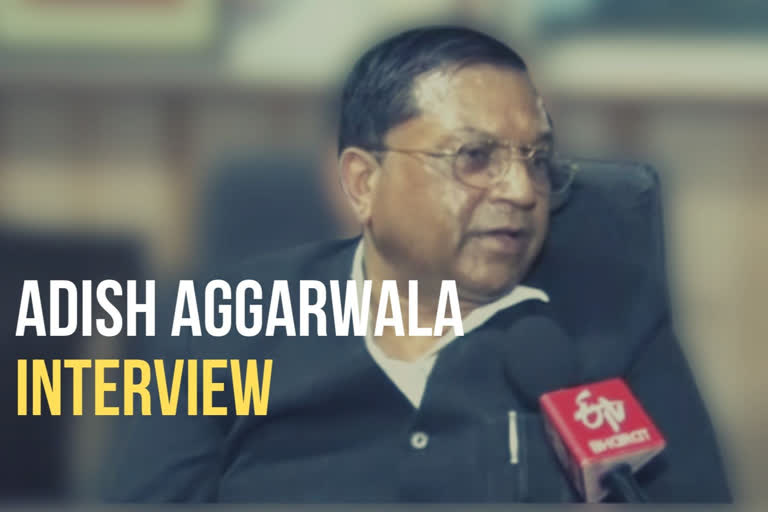New Delhi:Even as the Indian Constitution completes its 70th year of formation, what sets it apart is it being an amalgamation of constitutions from countries around the world.
To commemorate the5th Constitution Day or Samvidhan Diwas day, ETV Bharat talked to Adish Aggarwala, chairperson of the All India Bar Association and constitutional expert to shed light on some key aspects pertaining to the functioning of the Indian Constitution, such as why and how amendments take a long process to be incorporated in the constitution, Supreme Court judgements and the introduction of the Uniform Civil Code in this vastly complex country.
Asserting that the changes in the constitution are complex, Aggarwala says that in an assembly of 'intellectuals' there is bound to be disagreements or disapproval, hence introducing an amendment takes time and planning.
He claims that it is the beauty of democracy that allows the participation of various sections of people in a decision and at the same time provides people with the 'questioning' power.
Talking about his book 'Constitution of India', Aggarwala said that his book is a much more detailed version of all the historic verdicts. These judgments have been explained, along with the judges who've been a part of them.
On the Supreme Court's unanimous Ayodhya verdict, that gave the go-ahead in building a Ram temple at the Ram Janambhoomi-Babri Masjid disputed land, he said that despite the presence of a Muslim judge and diversity in judges, the judiciary has delivered an unbiased judgment.
